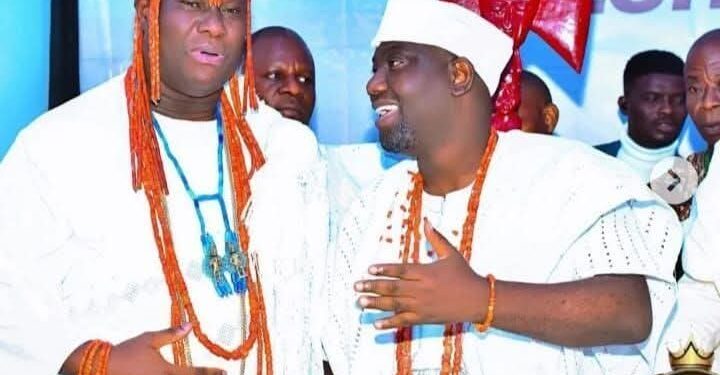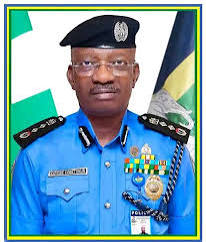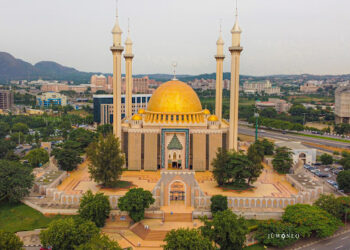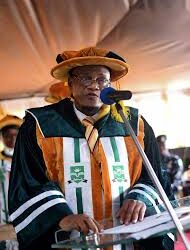By: Sayó Àlàgbé
IT is not a season of merriment. It is a season that calls for sober reflection and retrospection. How did we get here? The Yoruba nation is not known for controversies and trading words, especially among the ruling class. Something is definitely amiss.

THOUGH it is highly disturbing that historic towns: Oyo and Ile-Ife; who are at the heart of Yoruba transition and transformation, now in the fold of civilization, confront cultural, and social title challenges in binding the people together, though from the crossed lines of historical lanes. Significantly, it is important to look into the ancestral legacies and present realities that shape Yoruba identity and collective strength, which will definitely call for the soul of Yoruba unity, highly traceable to Ile-Ife and Oyo of old and modern times.
INSIGHTFUL is the fact that the duo of Ile-Ife and Oyo primarily hold the quest for Yoruba cohesion. Beyond their nomenclatures, the two are the convergence points and parting points, where age-old traditions encountered modern politics in defining the future of Yoruba people. Proactively, there is every reason, why the Ooni and Alaafin must rekindle brotherhood for the survival of the Yorubaland. The Yoruba race, in the history of Africa and the world, stands as people whose contributions cannot be erased or diminished. Universally recognized, the Yoruba are known for their sophistication, education, rich traditions, and an unbroken chain of historical consciousness that ties them to their revered ancestor, Odùduwà.
MOREOVER, in the narrative of the Yoruba history, two places stand like twin pillars holding the foundation of a civilization: Ile-Ife, acclaimed as the cradle and spiritual heartbeat of the Yoruba, and Oyo – historically recognized as the political stronghold. Both are inseparable, tied by the same umbilical cord of ancestry and destiny. Ife is Oyo; Oyo is Ife. One cannot thrive without the other, for they are the two life-lines through which the Yoruba people trace their existence. It is therefore worrisome, even heartbreaking, to see these two epicenters as custodians of spiritual and political authority, embroiled in needless rivalries and public spats. At stake is not just the dignity of two ancient thrones, but the unity, respect,influence of the Yorubaland, and its continuity.
THOUGH the cradle and the crown are like the metaphors that live in the metonym. They are like the siamese twins with conjoin existence. From time immemorial, Ile-Ife had been the sacred source, the “Navel of the World,” where creation myths, kingship traditions, and spiritual authority began. The Ooni of Ife sits not merely as a monarch, but as a custodian of divine heritage, a living link to Odùduwà himself.
SIGNIFICANTLY, by contrast, Oyo rose as the mightiest political power of the Yoruba people. The Alaafin was not only a king, also a sovereign whose empire extended far beyond Yoruba boundaries, which influenced territories and cultures with its military strength, diplomacy, and political ingenuity. Together, Ife and Oyo symbolized balancee spirituality and governance, faith and politics, heaven and earth. Contrarily, balance has given way to rivalry, where ego, recognition, and perceived supremacy now dominate conversations between these two stools of history. What should be an unbreakable brotherhood has too often turned into a battle of pride. It is a familiar terrain.
THE power of Yoruba nation-states does not lie in its vast population and popularity. Rather, history has taught us that unity has been the Yoruba’s greatest weapon. Despite their internal diversities in form of linguistic, cultural, or political, the Yoruba have stood firm against external aggression and domination. Unlike many other ethnic nationalities, they resisted conquest by the Hausa/Fulani hegemony. What shielded them was not the strength of one city-state, but the combined valor, discipline, and camaraderie of the entire Yoruba people.
THAT unity remains as crucial today as it was in the 18th century. A Yoruba proverb warns: Ilé tí a bá fi ìtàn kó, ìtàn ló máa wo“ (meaning that a house built on version of history, will collapse under the version of history”). The rivalry between Ooni and Alaafin is more than palace gossip; it is a fissure with dangerous implications for Yoruba strength in contemporary Nigeria. The Yoruba cannot afford to be a divided entity. The enemies of Yoruba progress and development, those envious of their sophistication, historical depth, and political relevance; are watching closely. As farmers fall to bandit attacks, communities reel under kidnapping, and Fulani marauders invade Yoruba farmlands, the last thing needed is a house divided at the top. That’s the catalyst for the final onslaught against Yorubaland by our enemies. It is not a way to go!
SADLY, within the above disturbing development is found Chief. Sunday Igboho’s reckless silent move of discord executed in a subtle and manipulative way to undermine the supremacy of Alaafin through his visit to Ooni. In the already complicated mixed steps, Sunday Igboho, the self-acclaimed Yoruba Nation agitator, once hailed as a fearless fighter defending Yoruba farmlands against invaders, his recent antics reveal more instability than statesmanship. He knows why he chooses this moment to spit into the significance of Alaafin in Yorubaland. Like a leave on the water, he is not stable in character and virtue, if at all he has any of them being noble.
TODAY, he is a loyal ally of the Alaafin, the next day a critic of the Ooni. Notably, his inconsistency makes him a dangerous voice in a season when Yoruba unity should be paramount. A freedom fighter who insults monarchs, disrespects not just individuals but the institution of Yoruba kingship itself, knows what he intends to achieve through inappropriate time and season along with the circumstances in-between. For him to have visited Ooni for forgiveness in a time like this, birth not only questions, but quest behind his moves. What is his disposition to the new Alaafin’s ascendancy to the throne? It is neither cold nor warm. There are suspicions and pretences that he likes the new Alaafin. Sunday Igboho’s visit to Ooni in a time like this has enabled Alaafin to know those who loathe him in secret and publicly show affection for his emergence. True colour always comes out in a season like this. A man cannot be in two places at a time, even three people cannot stand two-two.
MOVING forward, true warriors, history says, do not thrive on reckless outbursts. They embody wisdom, restraint, and courage. Igboho’s rhetoric today looks less like liberation and more like attention-seeking, especially when political seasons lie ahead. This is a familiar terrain for those who know how to read beyond the sonorous rhythms of his words. He is up to a motive, an hidden agenda on his sleeves. A Yoruba Nation cannot be built on quarrels, insults, and divisive speeches. If he truly desires to lead, he must learn the humility and wisdom that leadership demands.
TRUTH be told, the roles of Yoruba elders and icons are beyond their titles and influence. If this crisis is to be resolved, Yoruba elders must step in not as partisans but as mediators. The likes of President Olusegun Obasanjo, Chief. Afe Babalola, SAN, Professor Banji Akintoye, Chief. Reuben Fasoranti, Chief. Kessington Adebutu, Chief. Dr Mike Adenuga, Oba Otudeko, Pastor E.A. Adeboye, Bishop David Oyedepo, Chief Segun Osoba, Chief Rasaq Okoya, Aare Gani Adams, Senator Gbenga Daniel, Chief Ebenezer Obey, King Sunny Ade, and other illustrious sons of Odùduwà must rise to the challenge. Their voices carry weight; their neutrality is highly dangerous, their silence will not be forgiven by history.
WHAT is needed is not finger-pointing but reconciliation. A sober meeting between the Ooni and Alaafin, guided by respected Yoruba statesmen, can re-establish the brotherhood necessary for Yoruba survival and continuity. To take sides in this matter is to fan the embers of division. To reconcile is to strengthen the Yoruba fabrics of existence in all ramifications.
THE true Yoruba battle presently does not lie in unguided statements, but the Yoruba today face threats that should unite, not divide them. Across farms and towns, Fulani herders and marauders kill, kidnap, and terrorize communities. The security of Yorubaland is under siege. These threats,not rivalry between throne, should dominate Yoruba discourse.
EVERY energy spent on ego battles is energy wasted while enemies advance. The real battle is safeguarding Yoruba land, preserving Yoruba culture, and projecting Yoruba greatness in a globalized world. Like other ethnic groups within Nigeria jostling for dominance, Yoruba cannot afford distraction. Not at this particular point in time.
THE way forward remains reconciliation and renewal of direction, attainment of noble goals and sustainable continuity. The Yoruba monarchy, embodied in the Ooni and Alaafin, remains the backbone of the Yoruba people. Its dignity must be preserved at all costs. Rivalries, ego trips, and petty quarrels belong to the footnotes of history. The time has come for unity. It is left for the Ooni and Alaafin to be reminded that the duo hold critical positions in Yorubaland. They are sons of the same father.
THE Yoruba leaders need to bury their pride and rise as one, and agitators need to restrain their tongues and show respect to the thrones that hold Yoruba heritage. In our unity lies our strength, and in our brotherhood lies our dignity, in reconciliation lies the future. As a matter of fact, we need to remind our selves what Yoruba proverb says: Agbájọ ọwọ́ la fi n sòyà, àjèjé ọwọ́ kan kò gbérú d’órí; meaning that “we use collective hands to lift a load; a single hand cannot do it.” The Yoruba destiny cannot be carried by divided people and self-serving individuals with low values..
BEFORE the curtain is drawn, it is important to refrain from what holds us backward. The Yoruba are great tribe that cannot afford to stumble over the rivalry of two thrones. We are sophisticated to allow reckless agitators to derail their course. Our sense of history cannot tolerate internal enemies to exploit our frailty.
IN one voice, one spirit, and one purpose, the Yorubaland will continue to shine globally. Ile-Ife and Oyo must remember that they are not competitors, but complementary to each other. Spiritual and political, heaven and earth; together they formed the fabric of Yoruba existence. The Yoruba race will not wither, stumble, or fall, as long as its leaders shun rivalry, embrace reconciliation, and remember the generic brotherhood that lies in the source: Odùduwà!
You can get every of our news as soon as they drop on WhatsApp ...To get all news updates, Join our WhatsApp Group (Click Here)












